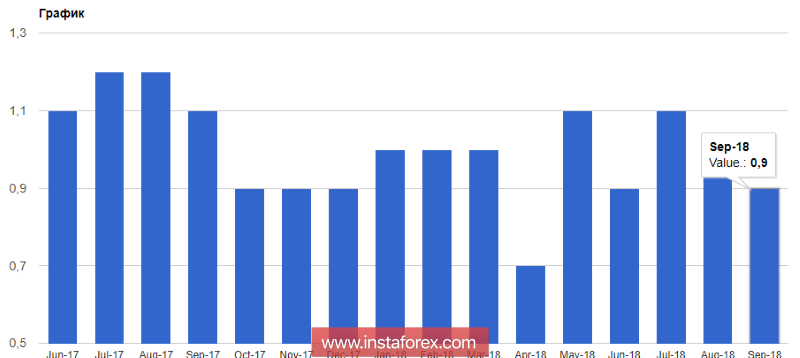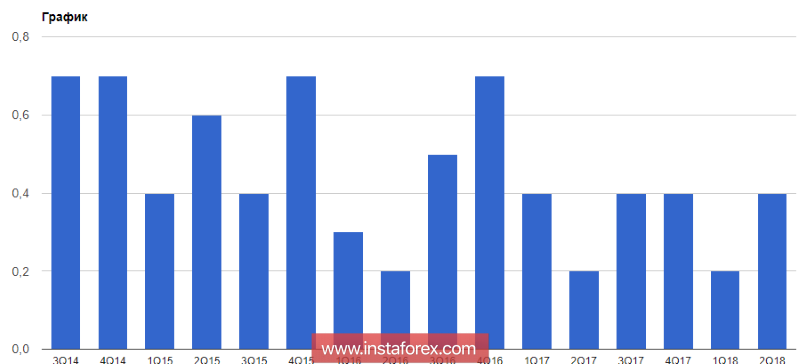La moneda europea continuó su declive frente al dólar estadounidense en el contexto de la subida de las tasas de interés de la Reserva Federal, así como la noticia de que el gobierno italiano elevó el nivel objetivo del déficit presupuestario, que muchos expertos temían.
Los datos débiles sobre la inflación en la eurozona, que solo a primera vista llegó al nivel objetivo, también llevó a la formación de la presión en el euro.
El Gobierno de Italia
Como señalé anteriormente, hoy se supo sobre el aumento en el nivel del déficit presupuestario italiano para el próximo año. El nuevo gobierno populista de Italia adoptó esas medidas para cumplir todas las promesas electorales que se expresaron durante la campaña. Esta forma de resolver problemas va completamente en contra de las normas y políticas de las autoridades de la Unión Europea, lo que llevará a una mayor confrontación e intensificación de la crisis política en Italia.
Según los datos, el déficit presupuestario ha estado aumentando a 2.4% del PIB, que es tres veces el nivel objetivo planificado por el gobierno anterior.
Los indicadores fundamentales de la eurozona
The eurozone inflation rate accelerated in September, exceeding the target value set by the ECB. However, one should remember about the indicator of core inflation, which has decreased, which will force the management of the European Central Bank to be wary of the completion of the incentive program.
According to the data, the preliminary CPI of the eurozone in September of this year, compared with the same period last year, increased by 2.1%. In August, the figure rose to 2.0%.

Not surprisingly, the growth is directly related to the increase in energy prices, which for the year rose by 9.5% after rising by 9.2% in August.
Core inflation, which does not take into account volatile categories, in September, on the contrary, slowed down to 0.9% from 1% in August and 1.1% in September of a gentle year.
As for the situation in the German labor market, everything is in order. According to today's report by the German Federal Employment Service, the number of applications for unemployment benefits fell by 23,000 in September this year compared with the previous month, while economists had expected a decline of 8,000. The unemployment rate in Germany fell to 5.1% in September.
The United Kingdom
The British pound ignored data on the growth of the UK economy and continued to decline gradually against the US dollar.

According to the report, in the first half of 2018 the growth of the UK economy was the weakest over the past 7 years. National Bureau of Statistics ONS revised its outlook for economic growth in the six months of this year to 0.5% from 0.6%. On an annualized basis, GDP grew by 1% in the first half of the year.
Today, a poll was published in which more than half of the respondents were in favor of maintaining British membership in the EU. Let me remind you that the Labor Party of Great Britain quite recently took the initiative to hold a second vote on the Brexit theme, as there are deep contradictions between London and Brussels on a number of problems.
 Español
Español 
 Русский
Русский English
English Bahasa Indonesia
Bahasa Indonesia Bahasa Malay
Bahasa Malay ไทย
ไทย Deutsch
Deutsch Български
Български Français
Français Tiếng Việt
Tiếng Việt 中文
中文 বাংলা
বাংলা हिन्दी
हिन्दी Čeština
Čeština Українська
Українська Română
Română

